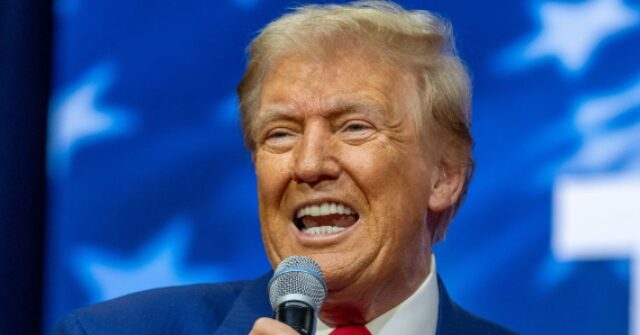During a recent campaign rally in Latrobe, Pennsylvania, former President Donald Trump shared a controversial anecdote about the late golf legend Arnold Palmer, generating buzz and mixed reactions. He took a moment to celebrate Palmer, a four-time Masters champion and a proud Republican from Latrobe, recognizing him as an iconic figure in both sports and politics. For roughly ten minutes, Trump recounted stories about Palmer, emphasizing his strength, toughness, and the esteem in which he was held. However, as he delved deeper, his remarks took an unexpected turn, leading to discomfort among some attendees.
Trump’s anecdote included a risqué comment about Palmer’s physical presence, which he framed within a locker room context. He remarked, “This man was strong and tough, and I refuse to say it, but when he took showers with the other pros, they came out of there, they said, ‘Oh my God, that’s unbelievable.’” While Trump shared this with a laugh, it was evident that he crossed a line, as many listeners found the comment inappropriate and distasteful. The anecdote, though meant to celebrate Palmer’s masculinity and prowess, instead drew a stark line between praise and potentially offensive commentary.
Palmer’s family, particularly his daughter, did not appreciate Trump’s choice of words. Although she expressed that she wasn’t “really upset” by the comment, she characterized it as a poor choice for honoring her father’s legacy. She conveyed a sense of disappointment, suggesting that such tales were not the right way to remember an icon like Palmer. Her response highlighted the disconnect between Trump’s approach and the sentiments of those close to Palmer, signaling that even light-hearted anecdotes can carry unintended consequences.
The fallout from Trump’s comments extended beyond personal grievances, drawing attention from political figures. Republican Speaker of the House Mike Johnson was asked to weigh in on Trump’s remarks during a CNN interview. Rather than directly addressing the comment, Johnson skillfully sidestepped the issue, urging for a focus on policies rather than personalities. This reflects a broader tendency in political discourse, particularly within the Republican Party, to navigate potentially inflammatory comments with care, especially in an election year.
As discussions around Trump’s remarks continued, it became evident that his storytelling approach could be polarizing. Supporters may view his locker room anecdotes as humorous and indicative of a relatable, candid style. In contrast, critics argue that such comments can diminish the respect owed to historical figures and create discomfort among the very demographic he aims to rally. The incident underscores the challenges politicians face in balancing authenticity with decorum, particularly in settings that require sensitivity and reverence for iconic individuals.
Ultimately, Trump’s anecdote serves as a reminder of the complexities of political communication. While anecdotes can help humanize candidates and connect them with their audience, they can also backfire if not carefully considered. As the 2024 campaign heats up, Trump’s approach may continue to elicit divided reactions, compelling both supporters and critics to reflect on the interplay between personal narratives and the legacies of those they discuss. The balance between lighthearted banter and respectful homage will likely remain a focal point as politicians navigate the intricacies of campaigning in a polarized climate.

